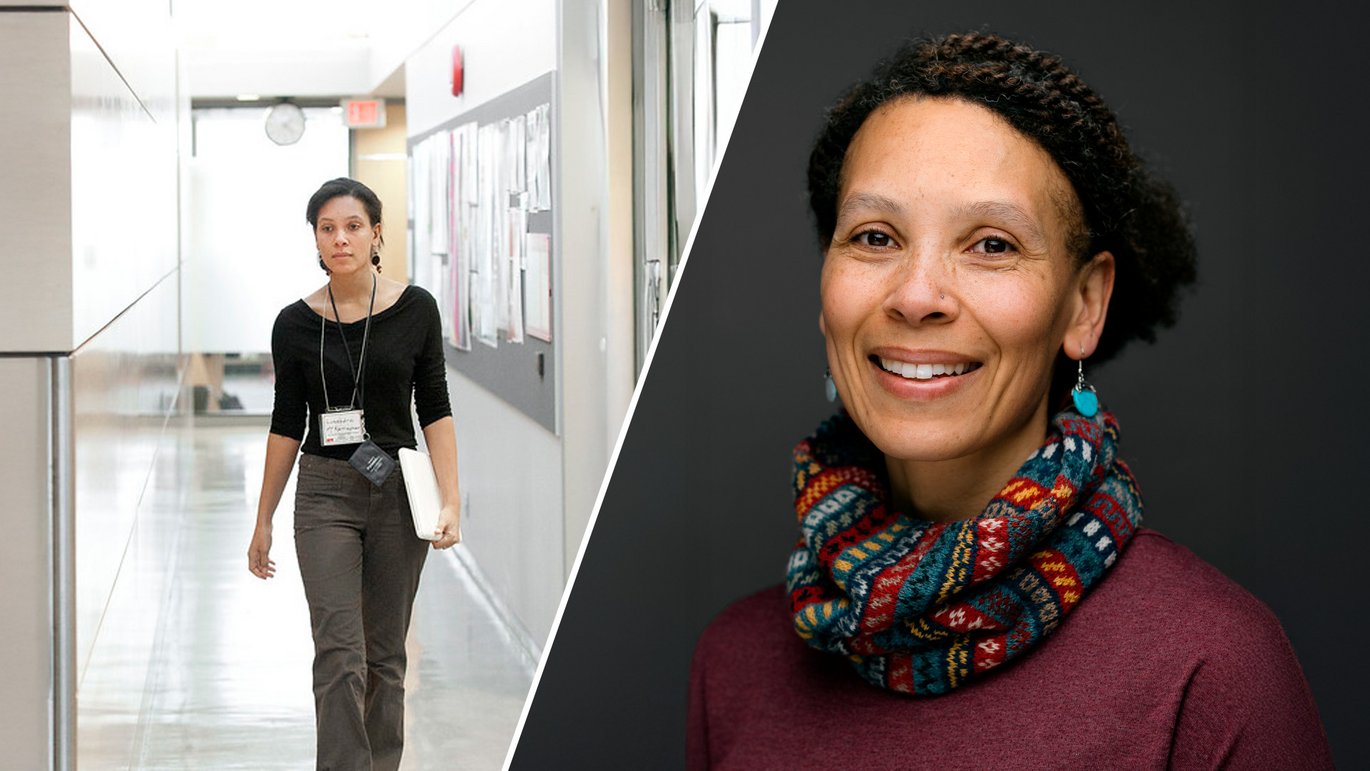Luseadra McKerracher: “Motherhood is the greatest obstacle in academia”
There are still bumps and dead ends on the academic career path when it comes to gender equality, diversity and inclusion. Here Luseadra McKerracher, an assistant professor at the Department of Public Health, shares her take on what it’s like navigating life within academia.

WHO'S WHO
Name: Luseadra Joy McKerracher
Title and affiliation: Assistant Professor at the Department of Public Health - Applied Public Health
Research area: Food security during pregnancy
Age: Early 40s
Residence and family: Lives in a townhouse in Aabyhøj with her husband, who holds a PhD in philosophy and works in a research support unit at the University of Southern Denmark. Together they have two daughters, aged 6 and 10.
ABOUT THE SERIES
The inspiration for this series of articles comes from the Committee for Gender Equity at Health, and is intended to spotlight the career opportunities and challenges junior researchers in particular face in their day-to-day working lives at the faculty.
Each article gives you a glimpse of what working at Health is like for researchers at different career stages and across all of our departments.
In 2023, we focused on work-life balance, and since 2024, we’ve been focusing on the theme of diversity, gender equity and inclusion.
There’s a link to all of the previous articles in the series under this article.
I was bouncing up and down with a baby in a sling on my chest while writing my PhD dissertation. In Canada, where I was a PhD student, you don’t have the right to paid parental leave, so I had to continue my research even though I had just become a mother. It was demanding. Incredibly demanding. It’s different in Denmark, and that’s a good thing.
It’s still a challenge to be on equal footing with men and with women who don’t have children. I definitely think it’s easier to immerse yourself and stay in flow if you don’t have to leave early, for example, to pick up kids. Statistics also show that fathers work longer days and produce more. That gives men and childless women a clear advantage in the competition for jobs and prestige. Motherhood—not gender—is, in my opinion, the biggest career obstacle in academia. But the children are absolutely worth it.
I love teaching. It’s the best part of being an assistant professor. But also the worst. The teaching part is time-consuming, especially when you’re new and inexperienced. In research, the road to “impact” can be very long. In teaching, my knowledge reaches the students directly and makes a difference in the world immediately. I like that.
I teach during the day and do research at night. Roughly speaking. It’s in the evenings, when the kids are in bed, that I have time to collect and focus my thoughts. It costs a bit in terms of sleep and mental health. But I collaborate with quite a few researchers in different time zones, so in that respect, it actually makes sense to work late into the night.
I did feel a bit like an outsider when I had to ask if we could switch to English. When I first started at the department, all research meetings were held in Danish. I’m Canadian, and although I’m married to a Dane and my Danish is pretty good, I often miss nuances when the dialogue isn’t in my mother tongue. Now it’s different. Meetings are in English, and there are more of us with international backgrounds.
During lunch the other day, we talked about associations in Denmark. I quickly realised that some of my newer international colleagues felt a bit left out. Organised associations are so deeply embedded in Danish society that we talk about them as if it’s the most natural thing in the world – forgetting that the whole structure can sound like complete gibberish to anyone who didn’t grow up here. I’ve realized that it’s not only language and university acronyms that can feel exclusionary. A lack of cultural context can as well. I’ve been in Aarhus for quite a while now, but I still try to remember to share context, even in informal conversations.
I got a job at AIAS when I first came to Aarhus. That was crucial. There were many researchers with international backgrounds like myself, and it was a good place to get to know my new home country. And it made the transition to my position at the department smooth. There’s strong leadership here, also in my section. That has been a great support.
I try to be a good support for my students. To pass on some of what I have received. For example, building trust and fostering a sense of community. I think that’s important. That’s why I hold weekly meetings with my thesis students, and we always start with a round where I ask the questions: What are you working on right now, and what else is taking up space in your life?
In recent years, I’ve researched Nordic universities’ strategies and guidelines for equality. Maybe that makes me more likely to notice the little things in daily and work life that are slightly off. Or maybe sometimes I’m seeing ghosts. The equality documents from the universities in Oslo and Reykjavik are relatively inclusive. They don’t only focus on gender but also address, for instance, disabilities. They don’t just have equality documents, but also action and implementation plans that apply to all their faculties. Aarhus University could definitely borrow a bit from that.
There are now more people of color and multilingual colleagues in my unit than before. Our students say it makes a difference for them to see greater diversity in the academic environment. That matters to me too.
Contact
Assistant Professor Luseadra McKerracher
Aarhus Universitet, Department of Public Health
Phone: 30 41 07 26
E-mail: luseadramckerracher@ph.au.dk